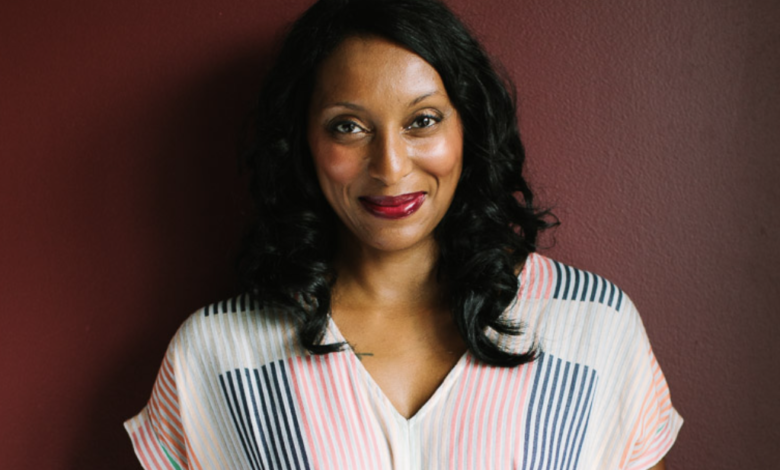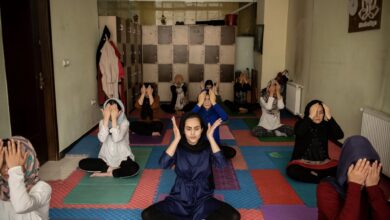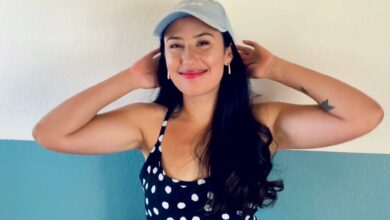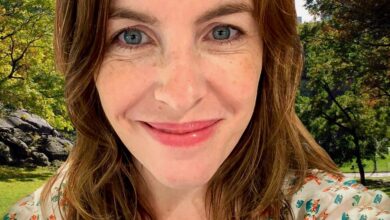Race Matters: “As a White Woman, Can I Adopt a Black Child?”

[ad_1]
Welcome to the third Race Matters advice column, featuring the wonderful Christine Pride. Today, a reader is asking about adoption…
Dear Christine,
In college, I decided if I ever had kids, I would want to adopt, and thankfully I have a supportive partner who feels the same. Over the years, however, I’ve become increasingly uncomfortable with the child welfare system and how a disproportionate amount of BIPOC children are removed from their homes. I’ve wondered if it’s right to adopt at all, and if we do adopt, if it is wrong to adopt a BIPOC child. We are both white, and I have been learning that BIPOC children who grow up in homes with white parents often experience racial trauma from their adoptive family. I know if we did adopt a child of a different race, we would need to be hyper-intentional about our community to make sure that they would grow up with friends, leaders, teachers and hairstylists who are their same race. They would need to see us have meaningful relationships with people who are not white. Still, despite all our efforts, I am not sure if it would still be appropriate. At the same time, there are higher rates of BIPOC children in foster care, so is it right to choose a white child over a BIPOC child? Is it right to not adopt because I know the system is flawed, even though there are still children stuck in the system who need a home? Should my goal be to fight to change the child welfare system so families have stronger protection — instead of adopting? I realize these are heavy questions without easy answers, but any insights would be greatly appreciated.
Thank you,
KB
Dear KB:
There are few more personal or profound questions than whether or not, and how, to have children, so I wanted to start by acknowledging that fact and that I’m, subsequently, approaching your thoughtful question with a lot of humility. There’s also no decision that invites more judgement or scrutiny, particularly when you deviate from the “traditional” path. I speak as someone who is “childfree by choice,” a phrase I don’t particularly love but gets the job done.
Though I don’t approach your question as a mother myself, I do have some relevant perspective in that my parents decided to become foster parents when I was in middle school and officially adopted my younger sister out of foster care when I was in college. From my personal experience, I understand foster care and adoption to be noble, complicated, challenging endeavors. And, as with everything, adding race to the mix magnifies the complexities involved.
Even though, theoretically, it should be simple, right? If a child needs a home, what does race really matter?
If a white parent offers a Black or brown child all the safety, nurturing and attention of a loving parent, isn’t that enough, especially imagining terrible alternatives that could await the child? But of course, in practice, it’s far from that straightforward, as you acknowledge in your letter.
You already recognize the most dangerous pitfall — believing that a colorblind, “love is enough” approach is enough and naively assuming the child will have no different experience in a white home as a black home. Granted this mindset often grows from the best of intentions, but nonetheless, it can be confusing — and damaging — to a child to grow up in a world where the color of their skin will have concrete (and sometimes painful) implications but they aren’t given any of the tools or support, or even just the basic acknowledgment of that fact. The result is the sort of trauma and damage you reference in your letter, and which yes, a lot of children of cross-racial adoptions do experience.
One of the most important things my Black parents did for my siblings and me was to prepare us to navigate a world in which we may be deemed inferior, stereotyped or worse. In addition to the basic requirements of parenthood, they had the added burden of building our self-esteem despite relentless insidious messages that Black kids like us weren’t as beautiful, smart or capable. They had to maintain a steady vigilance as I went to school, on playdates, traveled etc., to make sure I was as emotionally and physically protected as possible from the ever present specter of racism. And they showed me through hard-won wisdom, their examples and a steady supply of family legacy and lore, what resistance, resilience and racial pride looks like.
All of this is an intense additional burden white parents have the luxury to avoid. You will not, if you have a Black child. You will also not have the benefit of personal experience or common perspective to draw upon to help your child deal with the unique challenges of being a Black person in America. You will have to find some way to effectively and credibly convey support and understanding without having the innate connection of a shared experience. That’s a tough chasm, but not an insurmountable one. You’re already a step ahead in that your very skepticism tells me you understand how serious and important and difficult this endeavor is, and how much intention and effort it will require. You’re aware that you’ll have to have Black people in your child’s life, and not as tokens or figureheads, but true and meaningful relationships.
It will also take enormous amounts of education, intention and accountability. But even more than that it will require an openness. It’s imperative that you acknowledge your own humility and give the child a platform to share their experiences without diminishing or downplaying them. You have to make a constant effort to step outside your own experience and see the world through a different perspective: your child’s — even when that perspective is uncomfortable or painful or unrelatable.
Ultimately, the very personal choice, of whether you, as a white woman, can and should be a mother to a Black child is a matter of soul searching. My goal was to raise some vital considerations as you go about that process, and I recommend you seek out personal stories, wisdom and additional advice directly from adoptive parents and their children, too.
While working at Simon and Schuster, I had the great privilege of acquiring and editing Surviving the White Gaze by journalist and cultural critic Rebecca Carroll, which hit shelves this month, and which the Boston Globe describes as “generous, intimate, searching, and formidable, her story excavated from her core and delivered with fervor and clarity.” In this searing memoir, Rebecca chronicles her experience as a Black child raised in an all-white family and community. And when I say “all white,” I’m not exaggerating — she didn’t see her first Black person until she was six years old.
Needless to say, Rebecca is well equipped to speak on this topic from deeply personal and hard won experience, so let’s hear from her, too.
Two-for-one advice special this month!
Thanks,
Christine
Hi KB,
The part of your question that stood out to me the most is this: “Should my goal be to fight to change the child welfare system so families have stronger protection — instead of adopting?”
Because here’s the thing, if these two ideas are mutually exclusive in your mind, then you’re maybe not ready to adopt a BIPOC child. Being a white parent to a Black child, or any child at all, should always include fighting to change a wildly unfair child welfare system. To be sure, the stakes are higher when your adopted child, or potential adopted child, is among the demographic that is most disproportionately affected.
The other thing, though, is that the framing of “a goal” to fight “instead of adopting” makes parenting feel like a parenthetical here. Parenting is not about setting goals, in my mind, although it is very much about fighting — for fairness, empathy, safety and clarity, in your own family and the world around us. Setting a goal in this context seems transactional, when what your child needs is a cohesive and fluid family narrative.
That transactional part I have found to be very common among white adoptive parents of Black children specifically — think Diversity & Inclusion programs applied to parenting: find a Black dance teacher or hair person (make a Black hire), check, find a Black doll (the token Black History Month project), check, hang a poster of Serena Williams (aspirational image of Our Greatest Black People), check.
As Christine said, if you adopt a Black child, “you will have to find some way to effectively and credibly convey support and understanding without having the innate connection of a shared experience.” Christine is perhaps more optimistic than I am that it is not an insurmountable chasm. Because given how long it has taken white America to even begin to fully grasp the deadly depths and relentless repercussions of systemic racism, and with the advantage of my own experience as the Black adopted child of two very loving and smart white adoptive parents who didn’t quite get it right, there doesn’t appear to be a viable blueprint for surmounting this chasm.
But that doesn’t mean you can’t create one — or work collaboratively with other adoptive parents and adoptees (mostly the latter) to figure out how to do this the right way. My advice would be to lead as much with your heart as with your brain. Love as much as you learn, and integrate that learning into how you love. Don’t read Sula by Toni Morrison because you “should” as the parent of a Black child, but because it’s brilliant and insightful and exists outside of the White Gaze. Don’t follow Black Twitter because you “should” as the parent of a Black child, but because it will make you more culturally conversant and racially aware. And so on. You can read all the “How To Be Anti-Racist” books, but the real information you need to effectively parent a Black child is and has been out there since we got here. We’ve been creating and sharing culture, telling stories, and making music and art for time immemorial. Don’t just observe or co-opt it, internalize it in a way that changes how you think… not just about race or parenting or Blackness, but about everything at its very core.
Rebecca
Thoughts? Please feel free to email Christine with any questions or feedback at [email protected]. Thank you!
Christine Pride is a writer, book editor and content consultant. Her debut novel, We Are Not Like Them, written with Jo Piazza, will be published by Atria in fall 2021. She lives in Harlem, New York. She also wrote the Cup of Jo post Five Things I Want to Tell My White Friends. Feel free to email her with your questions at [email protected] or connect with her on Instagram @cpride.
P.S. Christine tackles other race questions, and how to raise race-conscious children.
(Photo by Christine Han for Cup of Jo.)
[ad_2]
Source link






